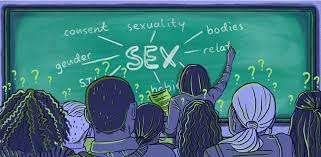School program to help identify sexual crimes

In 2019 there were 72,456 live births in Panama, of which 458 were girls under 15 years old and 11,809 adolescents between 15 and 19 years old who became mothers.
These numbers are only the cold reflection of a social phenomenon that is repeated and in which the lack of protection towards girls by their family nucleus comes into play, and by the State, which is unable to move from the letter to the action in regarding the assurance of rights and punishment of the offender reports La Prensa.
The issue, whose genesis is multifactorial, is addressed through an initiative awaiting first debate in the Labor, Health and Social Development Committee of the National Assembly. It seeks to give the force of law to the teaching of sexual education, materialized today in the country, after years of discussion to reach a consensus, in what is known as the Guides on Sexuality and Affectivity; and go a step further by including the prevention of sexual crimes.
The guidelines began to be developed in 2016 and it was not until the end of 2019 that the consensus document was ready. Then, it took almost a year and a half for it to be announced that the training for facilitators – 400 and virtually – would begin: in April 2021.
The proposal , by Gabriel Silva, Juan Diego Vásquez and Fátima Agrazal, aims to establish the ” Education Program for the Prevention of Pregnancies in Minors, Sexually Transmitted Infections and Sexual Crimes “. In it, part of the problem is attributed to the lack of information and ignorance of girls and young people about how to prevent risk situations and how to report them, when they are involved in them.
“The law] seeks to build on the guidelines. The continuity of the obligation and the continuity of sexual education is important; guarantees budget, guarantees hours of training, guarantees topics, ”said Silva, explaining how his proposal is inserted with the steps towards the teaching of sex education that the country has taken with the five guides prepared.
The guides are divided into: one aimed at parents (orientation and training in education in sexuality and affectivity), another for each educational level (primary, pre-secondary and secondary), and one aimed at pregnant adolescents, adolescent mothers and their parents.
According to the initiative, the program to be developed will be based on science, it will not be part of the general curriculum and schools must notify parents or guardians of the dates and topics to be discussed in each class, talk or workshop that organize. It will be the responsibility of the Ministry of Education (Meduca) and the Ministry of Health (Minsa) to establish the curricular design and teacher training, which should not be less than 30 hours to ensure the objectives.





